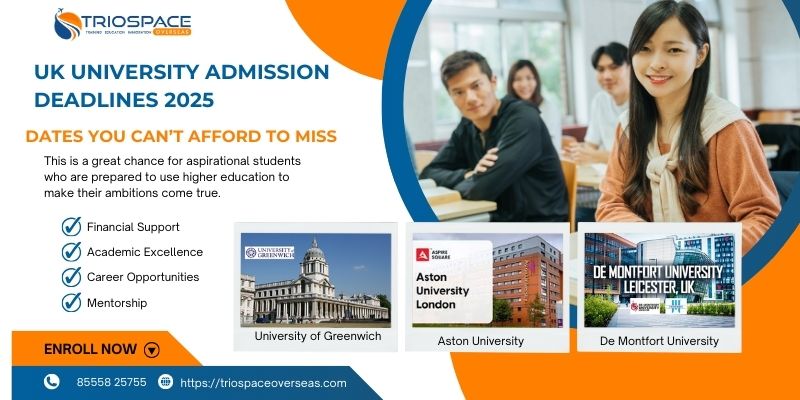
The Impact of UK Immigration Policies on International Students
Introduction
International students play a pivotal role in the UK’s higher education landscape, contributing significantly to the economy and enriching the cultural diversity of academic institutions. As the UK continues to be a leading destination for higher education, the relevance of UK immigration policies cannot be overstated. These policies, including the recent UK student visa new rules 2024, directly impact the experiences and decisions of international students. This blog delves into the impact of these policies, exploring both their positive and negative implications.
UK immigration policies have evolved over the years, reflecting the country’s changing priorities and attitudes towards international education. Understanding these changes, especially the UK student visa new rules and the UK student dependent visa new rules 2024, is essential for prospective and current students, as well as educational institutions and policymakers.
1. Historical Context of UK Immigration Policies
Over the past decade, UK immigration policies have undergone significant transformations that have shaped the landscape for international students.
Key Policy Changes: Policies such as the introduction of the Points-Based System and adjustments to the Tier 4 (General) student visa have been pivotal. These changes aimed to streamline the visa process and attract high-quality students.
Implications of Changes: Each policy shift has had varying implications. For instance, the tightening of visa regulations in the early 2010s led to a temporary decline in international student numbers, while recent policies like the Graduate Route visa have aimed to make the UK more attractive.
The historical context of UK immigration policies highlights a balance between attracting international talent and ensuring immigration control, a theme that continues to shape current policies.
2. Current Immigration Policies
The current UK immigration rules for students are designed to facilitate the entry and stay of international students while ensuring compliance with broader immigration goals.
Student Visa Requirements: The UK student visa new rules 2024 outline specific criteria for eligibility, including financial requirements and English language proficiency. These rules aim to ensure that students are well-prepared and capable of succeeding in their studies.
Post-Study Work Visa Options: The introduction of the Graduate Route visa allows students to stay and work in the UK for up to two years post-graduation. This policy provides valuable opportunities for graduates to gain work experience and potentially transition to long-term employment.
Changes in Work Rights During Studies: Current policies permit international students to work part-time during their studies and full-time during breaks. These work rights are crucial for students needing to support themselves financially.
Recent Updates and Announcements: The UK student visa new rules and the UK student dependent visa new rules 2024 include important changes, such as adjustments in dependents’ work rights and modifications to visa conditions to better support students and their families.
3. Positive Impacts on International Students
The recent UK immigration policies have had several positive impacts, enhancing the UK’s appeal as a study destination.
Increased Attractiveness: Policies like the Graduate Route visa have made the UK more appealing by offering clear pathways for post-study employment. This aligns with the aspirations of many international students seeking global work experience.
Graduate Route Visa: This visa has been particularly beneficial, allowing graduates to stay and work in the UK for up to two years. This opportunity helps graduates gain valuable work experience, enhancing their career prospects.
Student Testimonials: Numerous international students have shared success stories, highlighting how UK immigration policies have positively impacted their educational and professional journeys. For instance, many have successfully transitioned from student visas to skilled worker visas, integrating into the UK workforce.
These positive impacts underscore the importance of progressive immigration policies that support international students’ aspirations and contribute to the UK’s academic and professional landscape.
4. Challenges and Negative Impacts
Despite the positives, certain aspects of the UK immigration policies present challenges that need to be addressed.
Bureaucratic Hurdles: The visa application process can be complex and time-consuming, requiring extensive documentation and financial evidence. These bureaucratic hurdles can be daunting for prospective students.
Financial Burdens: The high cost of visa fees, combined with the UK’s relatively high cost of living, poses financial challenges for many international students. This can deter talented students from choosing the UK as their study destination.
Impact on Student Mobility and Decision-Making: Stringent visa conditions and uncertainties about post-study opportunities can influence students’ decisions. Some may opt for countries with more straightforward visa processes or better post-study work options.
Case Studies: Real-life examples highlight these challenges. For instance, some students have faced visa rejections or delays, disrupting their study plans and causing financial strain. Others have struggled with navigating the complex requirements of the UK student visa new rules 2024.
Addressing these challenges is crucial for ensuring that the UK remains a top choice for international students.
5. Comparative Analysis
Comparing the UK’s immigration policies with those of other major study destinations provides valuable insights into its competitive positioning.
USA: The US offers Optional Practical Training (OPT) for graduates, similar to the UK’s Graduate Route visa. However, recent changes in US immigration policies have created uncertainties, potentially making the UK more attractive.
Canada: Canada’s policies, such as the Post-Graduation Work Permit (PGWP), offer generous post-study work opportunities, often leading to permanent residency. The UK’s Graduate Route visa competes well but has a shorter duration.
Australia: Australia’s Temporary Graduate visa allows graduates to work for up to four years, depending on their qualifications. The UK’s two-year Graduate Route visa is shorter, which might influence students’ decisions.
Global Positioning: The UK’s immigration policies, including the UK new rules for international students, position it competitively but also highlight areas for improvement. Offering more extended post-study work options and simplifying visa processes could enhance its appeal further.
6.Economic and Cultural Contributions of International Students
International students bring substantial economic and cultural benefits to the UK.
Economic Benefits: International students contribute significantly through tuition fees, accommodation, and living expenses. They support local economies and create jobs.
Cultural Diversity and Enrichment: The presence of international students fosters a multicultural environment, enriching the academic and social experiences of all students. This diversity promotes cross-cultural understanding and collaboration.
Impact on Research and Academic Excellence: International students often engage in cutting-edge research, driving innovation and contributing to the UK’s academic excellence. Their diverse perspectives enhance research outcomes and academic discourse.
Recognizing and supporting these contributions is essential for maintaining the UK’s status as a global education leader.
7. Stakeholder Perspectives
Understanding the perspectives of various stakeholders provides a well-rounded view of UK immigration policies.
Universities and Academic Institutions: Universities generally support policies that facilitate the recruitment and retention of international students. They advocate for policies that reduce bureaucratic barriers and enhance post-study work opportunities.
International Students and Alumni: Their experiences and feedback highlight the real-world impact of these policies. Positive testimonials reflect the benefits, while criticisms point to areas needing improvement.
Policymakers and Immigration Experts: Their insights are crucial for shaping future policies. Balancing immigration control with the need to attract international talent is a common theme in their recommendations.
Engaging these stakeholders in dialogue is vital for developing balanced and effective immigration policies.
8. Future Outlook
Looking ahead, potential changes in UK immigration policies could further influence international student enrollment and satisfaction.
Predictions: Future updates may include more streamlined visa processes, extended post-study work opportunities, and enhanced support for students and their families.
Long-Term Impacts: The ongoing evolution of these policies will likely impact the UK’s standing as a top study destination. Policies that are perceived as welcoming and supportive will attract more students.
Recommendations: Policymakers should consider feedback from all stakeholders to create balanced and effective immigration policies. Simplifying visa processes, reducing financial burdens, and extending post-study work options are key areas for improvement.
Conclusion:
In conclusion, UK immigration policies play a pivotal role in shaping the experiences of international students. Recent changes, including the UK student visa new rules 2024 and the UK student dependent visa new rules 2024, have brought several benefits but also pose challenges that need to be addressed. Balanced and fair immigration policies are crucial for maintaining the UK’s attractiveness as a global education hub. Engaging all stakeholders in dialogue and advocacy is essential for ensuring that future policy changes enhance the experience for international students, benefiting both the students and the UK.
By understanding the impact of these policies, stakeholders can work together to create an environment that supports international students and strengthens the UK’s position as a leader in global education.
Contact Triospace overseas today for personalized guidance and support. Let’s make your dream of studying in the UK a reality!
FAQ’S
1.How have recent UK immigration policies affected international students?
Ans: Policies have fluctuated, but recent changes include the introduction of the Graduate Route visa, allowing students to stay and work in the UK for two years post-graduation, and streamlined visa processes.
2. What is the Graduate Route visa?
Ans: The Graduate Route visa allows international students who have completed an eligible course to stay in the UK for two years (three years for PhD graduates) to work or look for work.
3. Are there any restrictions on the Graduate Route visa?
Ans: Yes, students must have completed a degree from a recognized UK institution and hold a valid Tier 4 or Student visa at the time of application.
Nikhilsaiteja.A
Study Abroad Expert | 7+ Years of Experience



















